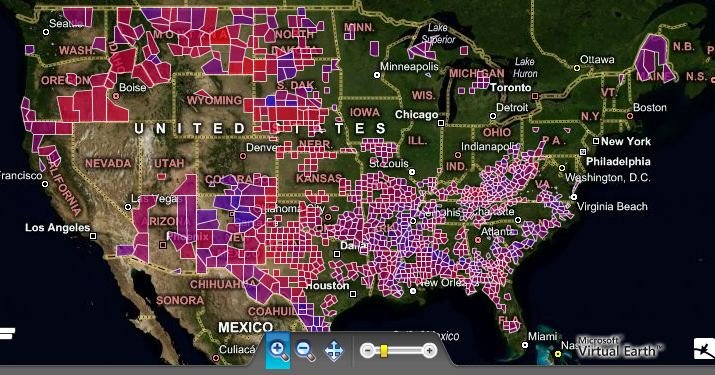No. When appraisers do their comparables for appraising purposes, they use similar residences. So, when I refinanced the mortgage on my place, it was compared to other studio apartments in the area, not to the more expensive houses.
Not talking appraisal, talking selling the unit
I agree an appraisal used similar residences (similar style house and location)
however what a buyer pays for it will be proportional to quality of community, and if the school system went downhill, it will affect all properties in community, and if members of community left (even other style residences), your price would be affected.
Two good examples (one real, one fictional)
When GM left Flint MI, did not matter what type of residence existed, they all went downhill as far as price goes. I make similar analagy to good school district- if something in district (high foreclosures?) forced people to move out and lower tax base, all properties in that district will see a lower cost.
If Disney had to pull out of Orlando Florida, it would have a negative impact on real estate prices for everyone.
My real point is this- in most towns in tiny town USA, there is no GM or Disney which exist keeping people in the area. Its usually a combination of the schools, safety (police, fire, hospitals) and other minor conveniences (like grocery stores, bars and public transportation).
If any of those things pull out (for example the bus stop closes, the police department lays people off or the schools decrease in quality), the real estate values of that area drop- regardless of who paid how much property taxes or who used the schools, the local economics affects housing prices of everyone.
It is not proportional though
Meaning just because the value of my house dropped 25% does not mean the condo 2 miles away dropped 25%. Its possible one holds value better than other, but the prices of all will drop some degree if community goes to crapper.
edit to add-
I am reasonably familiar with long Island locations- having consulted there about 5-10 times over a 8 year span. My sister lives on Long Island and my brother went to school at south hampton (when it existed).
I understand the "high" taxes of the area, and my opinion is that there is something else entering into equation other than just school taxes- like a corrupt NYS political and budget system which misuses funds thru the whole state.
I agree your taxes on LI are sky high (my house in Ohio would probably sell for 3X what I paid for it on Long Island where my sister lives). And I know I could not afford taxes on my Ohio house if I lived in NYS either (I am from Rochester, but know things out your way are even worse).
I probably don't comprehend the nature of the problem until I live it, but its not up to the tax code to keep families together or allow them to live close to one another. That is social engineering at its worst IMO.


